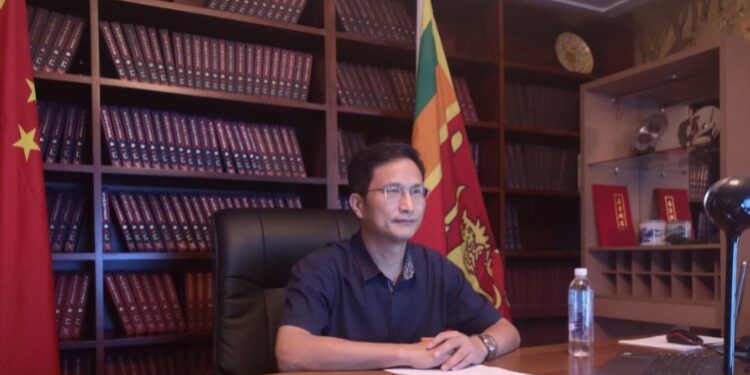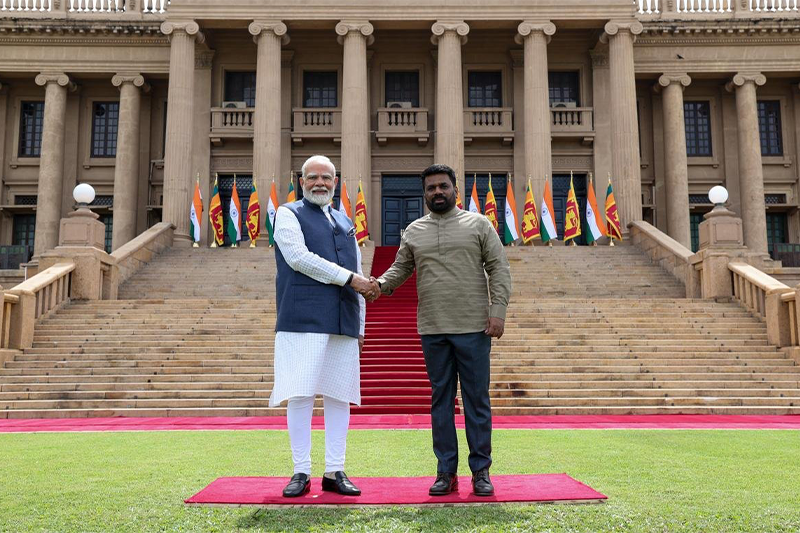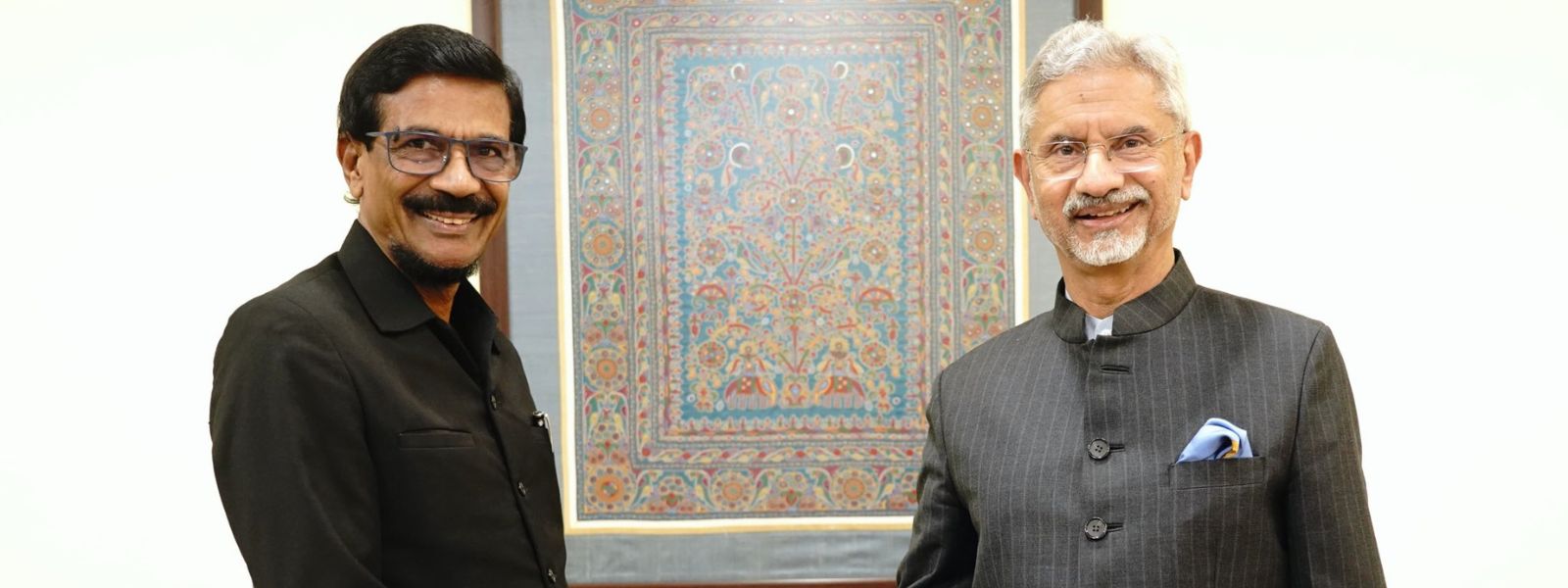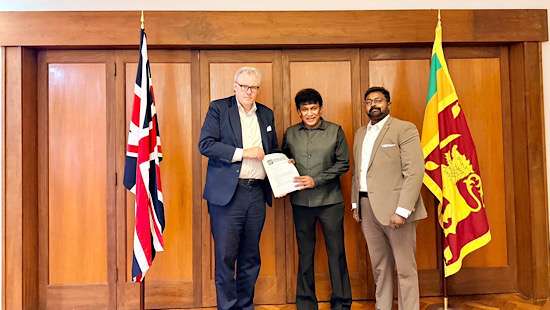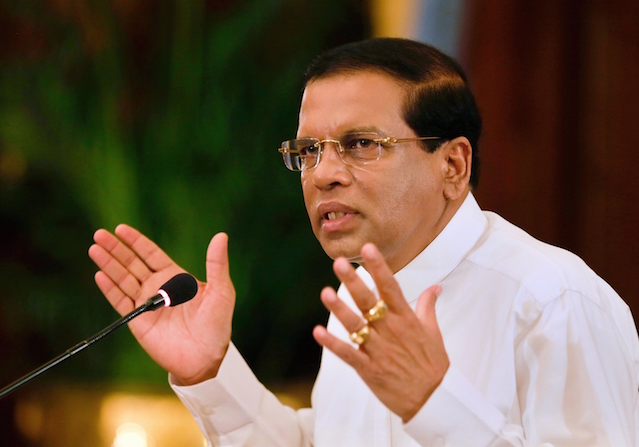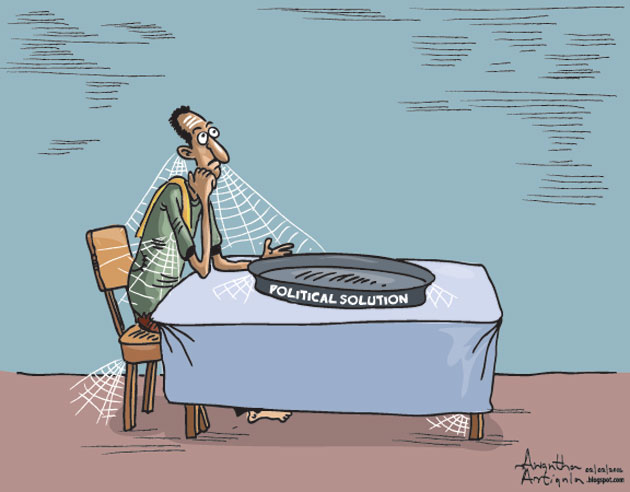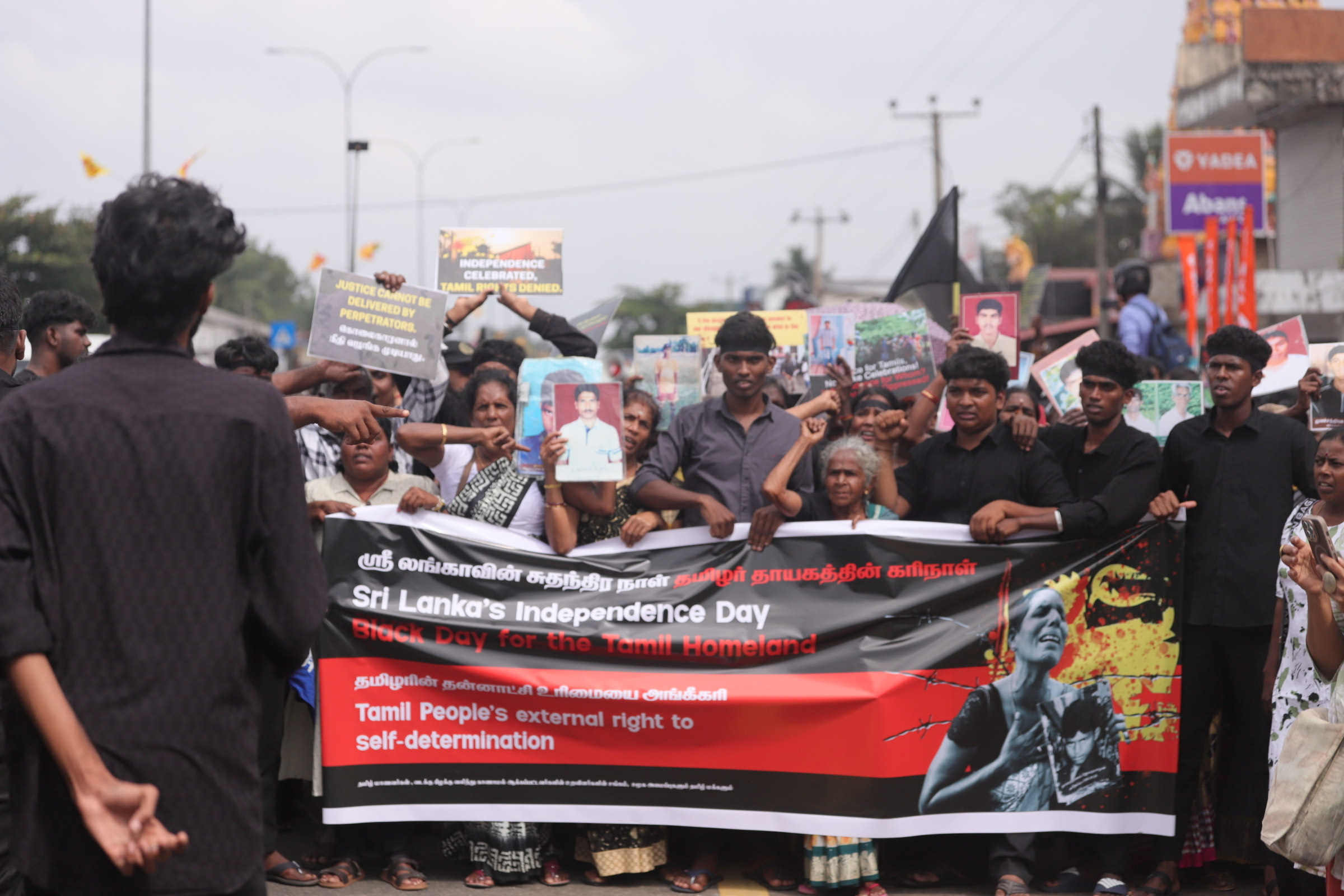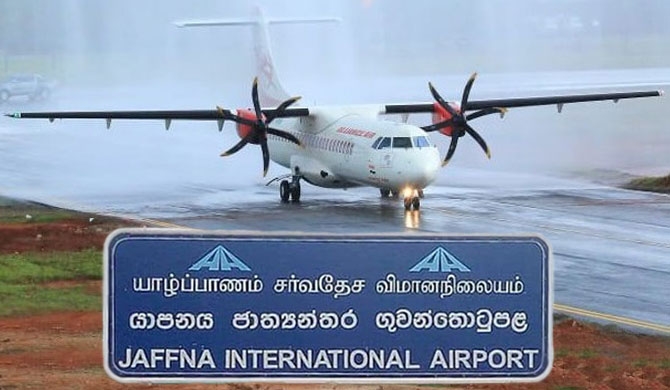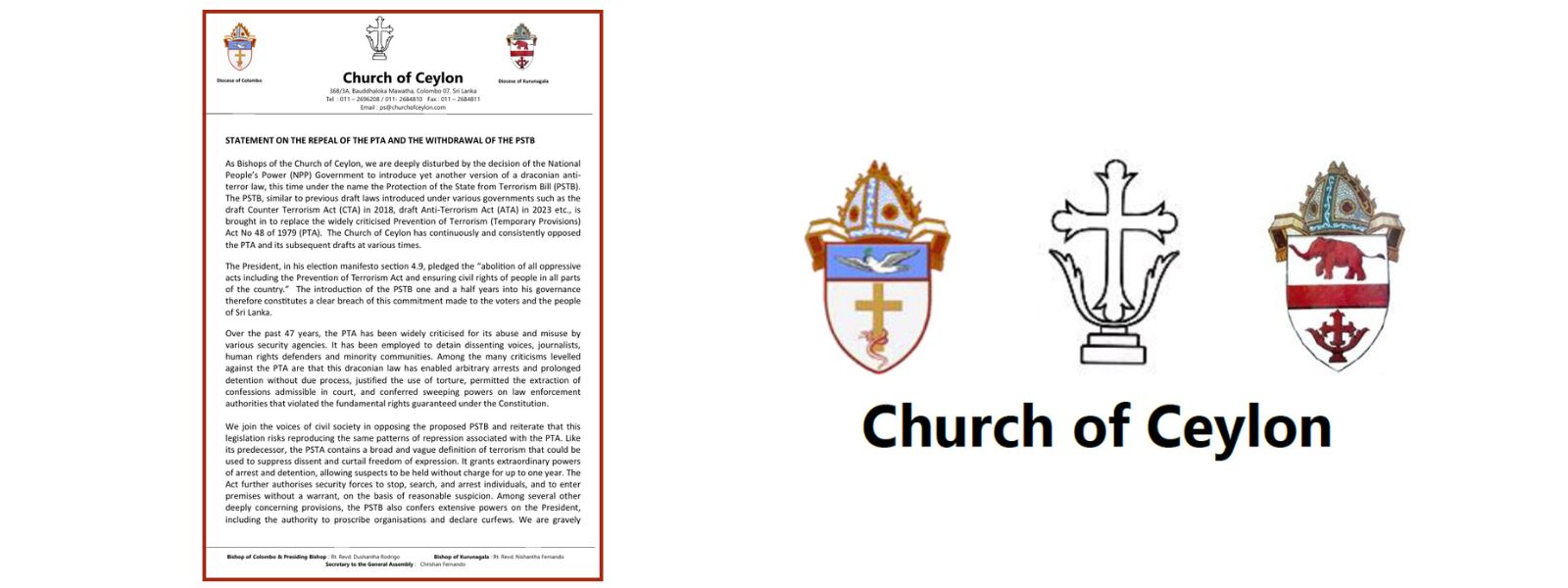President Anura Kumara Dissanayake (AKD) and his Janatha Vimukthi Peramuna (JVP)-led National People’s Power (NPP) Government made sober, simple celebrations centre stage at this year’s Independence Day celebrations. Arriving in a vehicle convoy led by three motorbikes without the usual horsemen and a series of motorbikes, AKD got down from the front passenger side of the vehicle upon arrival at the event. Even the cameramen covering the event were not prepared to see the President get down from the front passenger-side seat.
The overall celebrations were held in a subdued manner, reflecting a bit on the ideologies of Marxist-Leftist movements that hold a special view on the matter of freedom and national pride.
However, the recently concluded 78th Independence Day celebration has been subjected to much discussion, both positive and negative. One of the key aspects of the celebration was its progressive move towards reconciliation and ethnic harmony. Despite the conclusion of Independence Day celebrations last Wednesday (4), the discourse continues with many Opposition parties expressing displeasure over the Government’s decision not to celebrate with pomp and pageantry by parading military hardware like in the past.
The Government had justified the decision by stating that there was no national pride in parading military hardware that had been purchased by indebting the country. The Opposition, especially the nationalist camp, hit back saying that the military armaments that were used to defeat the Liberation Tigers of Tamil Eelam (LTTE) and end the war should have been paraded at the Independence Day celebrations.
Another argument put forward by Opposition politicians is that successive governments had, and the incumbent Government is, prepared to take loans for development as well as capacity-building work and that there was no logic in the Government’s statement that there was no pride in parading military hardware purchased through loans. Some social media posts noted that if the Government was concerned about parades using items bought through loans, the Government should not have flown a plane that was recently taken on lease by SriLankan Airlines in some parts of the country to show off to the people.
However, the debate between the Government and Opposition also resulted in various opinions being posted by members of the public on social media. Some posts, especially by moderate, pro-reconciliation segments, have noted that the military hardware and the war victory was used by some governments as a tool to intimidate some ethnic minorities in the country.
Addressing the Independence Day celebrations, President AKD set out a broad economic vision centred on governance, human capital, and equitable growth, arguing that Sri Lanka’s political independence remained incomplete without economic freedom. The President said the country was still “engaged in a struggle to complete our independence,” adding that “the true fulfilment of independence lies in the extent to which we are able to achieve economic freedom”.
He said that the Government’s rebuilding agenda must rest on sovereignty, self-determination, and freedom while drawing selectively from Sri Lanka’s past. “We are a nation with a proud and ancient history,” he said, noting that rebuilding would require the country to “discard what is harmful” while embracing what strengthens long-term development.
He also invoked an African proverb ‘go far together’ during his speech. “If you want to go fast, you can go alone, if you want to go far, let’s go together,” AKD said.
However, amidst Independence Day celebrations focusing on unity, a large rally was held in Kilinochchi in the Northern Province that day to declare Sri Lanka’s Independence Day as a ‘Black Day’ for the Tamil people, highlighting longstanding grievances in the north and east.
The march, which began at the Kandaswamy Temple premises in Kilinochchi, proceeded to the Depot Junction before concluding with a Black Day declaration by a collective of civil society organisations.
Protesters called attention to what they described as continued oppression in the Tamil homeland of the north and east, demanding the release of political prisoners, justice for families of the forcibly disappeared, and an international investigation into alleged human rights violations.
Sajith attends celebrations
However, it was interesting to see Opposition and Samagi Jana Balawegaya (SJB) Leader Sajith Premadasa attending the 78th Independence Day celebrations presided over by President AKD. It is interesting since Premadasa had not attended the Independence Day celebrations under former President Ranil Wickremesinghe.
During Wickremesinghe’s tenure in office, neither Premadasa nor the JVP/NPP attended the Independence Day celebrations, claiming that it was not proper to hold celebrations spending millions of rupees when the country had declared bankruptcy. One of the key issues that prompted much discussion at the time was the way the Government was willing to spend money on a celebration after claiming there was no money to hold an election.
Despite proposals by some members of the Wickremesinghe Government to not hold a grand Independence Day celebration, President Wickremesinghe opined that the country and the people needed a morale boost after facing the brunt of the crisis and a grand celebration was therefore necessary for the purpose.
Wickremesinghe’s position as then President was understandable, as well as the Opposition’s stance at the time.
Premadasa’s attendance at this year’s Independence Day celebrations indicates the commitment of the Opposition towards rebuilding Sri Lanka in unity.
No space for extremism
Be that as it may, President AKD reiterated his commitment to ensuring that there would not be any space for extremism in the country.
Speaking at an official event in Kandy on Friday (6), the President claimed that extremism was the only slogan left for some Opposition politicians as well as ultra-nationalist elements in the south and also the north. He claimed that extremists in the north were the ones protesting outside Buddhist temples and it was the extremists in the south who tried to use their visits to the temples to aggravate the situation.
“There will be no room for extremism in the north or the south,” AKD claimed.
AKD to visit India
Meanwhile, it is learnt that President AKD will be travelling to India on an official visit in a few weeks’ time to attend the AI Impact Summit in New Delhi. This will be AKD’s second official visit to India since assuming office.
JVP General Secretary Tilvin Silva meanwhile led a delegation to India on Thursday (5). Silva’s visit to India was previously planned in December last year. However, developments following Cyclone Ditwah had resulted in the visit being postponed to this year.
A few days prior to Silva’s visit to India, the Indian Government proposed an INR 1 billion assistance package for Sri Lanka in its 2026 Budget proposals. Accordingly, India has proposed a total of INR 4 billion in grants and loans to Sri Lanka through the 2026/’27 Budget.
Silva on Friday (6) met Indian External Affairs Minister Dr. S. Jaishankar where the discussion had focused on further strengthening bilateral relations, exploring growth opportunities, and advancing social welfare initiatives between the two countries.
Rajapaksa drama
Meanwhile, drama continued to unfold on the Opposition political platform following the court drama over former President Wickremesinghe’s case on the alleged misuse of public funds the previous week, with focus last week being diverted towards the probes on former First Lady Shiranthi Rajapaksa and Opposition Member of Parliament (MP) Namal Rajapaksa.
When news of Shiranthi and Namal both being summoned by the Financial Crimes Investigation Division (FCID) and Criminal Investigation Department (CID), respectively, to record statements came out, many wondered why the mother and son were being summoned by investigators on the same day (3).
It is learnt that Namal was first summoned by the CID on 26 January and that he had been unable to visit the department since he had been on a tour in India. Shiranthi, however, had been asked to visit the FCID to record a statement on Tuesday (3).
Since Shiranthi was to appear before the FCID on Tuesday (3), Namal’s lawyers had decided to inform the CID that he would make a statement to the latter department on the same day as well.
Nevertheless, the Sri Lanka Podujana Peramuna (SLPP), which seems to have mastered the art of public spectacles, organised some of its supporters to be transported to the Fort area, outside the FCID and CID to express support to Shiranthi and Namal. While the SLPP tried to portray a sense of public demand for the Rajapaksas not to be probed by law enforcement, some people among the crowd were seen giving voice cuts to the media saying they had come to see what was going on.
Despite the drama, Shiranthi and Namal left the FCID and CID after recording their statements, with Namal claiming a political witch-hunt against him and Opposition politicians by the Government to cover up its failures.
Appointing auditor general
Meanwhile, the long-overdue appointment of an auditor general concluded last week with the Constitutional Council that met last Tuesday (3) finally approving the latest nominee by the President to fill the post that has been vacant since last April. The final name proposed by the President, a senior official at the Attorney General’s Department, L.S.I. Jayarathna, was unanimously approved by the council.
The Constitutional Council had rejected several names proposed by President AKD earlier for several reasons, with the key reason being the objection to appointing an individual from outside the Auditor General’s Department. Opposition Leader Premadasa had earlier stated that while there could not be an acting auditor general appointed again, the next permanent auditor general should be nominated from among the senior staff at the Auditor General’s Department.
Gammanpila’s issue
However, Jayarathna’s appointment as the Auditor General following a presidential nomination to the Constitutional Council had raised some questions among some Opposition politicians. The reason was that the Chief Prelates had recently urged the President in writing to immediately appoint a permanent auditor general, noting that Dharmapala Gammanpila, who is a senior officer at the Auditor General’s Department, was the most suitable individual to be appointed to the post. Despite the request by the Chief Prelates as well as from some quarters of the civil society, President AKD had moved to propose Jayarathna’s name instead to the post of auditor general.
While some social media reports claimed that the President did not want to nominate Gammanpila since he was a close relative of Opposition politician Udaya Gammanpila, it was later found that there was no close relationship between the two. In fact, many close relatives of Dharmapala Gammanpila, it is learnt, had supported and worked closely with the ruling JVP/NPP during the 2024 elections. Even when these relatives had spoken on behalf of Gammanpila with staff members at the JVP’s Pelawatte office, they had reportedly distanced themselves, saying that they were unable to intervene in the matter.
A senior Opposition member noted that Gammanpila had lost the opportunity to head the Auditor General’s Department due to a rift between him (Gammanpila) and an official working closely with the President at the President’s Office. Several social media posts claimed that Gammanpila had attended the same school as Minister Vijitha Herath and one Kumarasinghe, who is at the President’s Office, and that the reason for sidelining Gammanpila was a result of some childhood rivalry.
While these statements have some truth in it, like the fact that Gammanpila, Herath, and Kumarasinghe had all attended Bandarawela Central College during the same period, Gammanpila had been two years junior to both Herath and Kumarasinghe in school. When Herath and Kumarasinghe had entered the University of Kelaniya, Gammanpila had studied for a chartered degree instead of entering university.
Although both Gammanpila and Kumarasinghe had joined the Auditor General’s Department around the same time, Gammanpila had received a promotion quicker than Kumarasinghe since he had completed his chartered degree, with Kumarasinghe having had to work under Gammanpila on some occasions, according to informed sources.
It is believed that some clashes that had taken place during this period had compounded the situation, resulting in Gammanpila being sidelined from the post of auditor general.
NCM against Speaker?
Meanwhile, a group of Opposition MPs had mooted the idea of moving a No-Confidence Motion (NCM) against the Speaker of Parliament. The motion was being discussed following the manner in which Deputy Secretary General of Parliament Chaminda Kularatne was suspended from office by the Speaker.
However, a final decision on the proposed NCM was discussed at the Opposition parliamentary group meeting last Monday (2). It is learnt that a decision had not been made on moving an NCM against the Speaker at this meeting.
Parliament sources meanwhile have also noted that the Commission to Investigate Allegations of Bribery or Corruption (CIABOC) is expected to conduct a probe into several officials in Parliament, who are believed to have assisted in Kularatne’s appointment as Deputy Secretary General of Parliament.
Complaint to CIABOC
Kularatne meanwhile filed a complaint with the CIABOC against Speaker Jagath Wickramaratne on Monday (2) alleging corruption.
According to Kularatne’s legal counsel, Attorney-at-Law Mithun Dias, the complaint targets the Speaker specifically and not the Government. It is learnt that some of the allegations include the misuse of three official houses, using an extra vehicle in addition to the two vehicles assigned to the office, utilising two fuel allowances, and avoiding responding to a request for details about these issues under the Right to Information (RTI) Act.
However, Chief Government Whip, Minister Nalinda Jayatissa told Parliament the following day (3) that the investigation into Kularatne was based on concerns regarding his appointment, qualifications, and the process through which he had been made permanent in the role – stressing that a personal dispute with the Speaker was not the matter being investigated.
Dispute continues over DSG
Meanwhile, the debate over the recent suspension of Deputy Secretary General (DSG) of Parliament Kularatne resurfaced in the House last Tuesday (3), with questions being raised on whether the process was bona fide or mala fide.
Opposition Leader Premadasa told the Speaker in Parliament: “It is evident that there is a disagreement between yourself and the suspended Deputy Secretary General. Therefore, the process cannot be mala fide but must be bona fide. There cannot be a conflict of interest.” He called for future disciplinary actions involving high-ranking officials to follow an independent process, following established precedent.
He also questioned whether it was ethical and legal for an official of lower rank to lead an investigation against a higher-ranking official. “For the first time, there is a rift between the Speaker and the Secretary General’s staff. It is best that all parties take a step back, act democratically, and ensure that the fundamental rights of Chaminda Kularatne are protected through proper procedure,” he noted.
Opposition MP Shanakiyan Rasamanickam also noted that Kularatne had not been given the opportunity to respond to the allegations against him. “This is a disgusting situation. A complaint has been lodged against you at the Bribery Commission. Parliament is the highest institution of democracy in this country. The precedent being set here is wrong,” he told Speaker Wickramaratne.
SJB MP Chamindranee Kiriella also noted that the Speaker had the responsibility to inform the House before such action was taken against a Parliament official, while MP Ajith. P. Perera stated that it was unethical for the Speaker to take a leadership role in investigations against Kularatne, urging for the matter to be handed over to an independent party.
However, Chief Government Whip, Minister Jayatissa, responding to the criticism, defended the process, stating that Chief Investigating Officer S.K. Liyanage – an Additional Secretary – had been appointed by the Staff Advisory Committee on 25 August 2025 and that Liyanage had been selected from a pool of qualified officers at the Ministry of Public Administration and had prior experience in similar investigative roles.
Jayatissa also threw the ball back to the Opposition court by stating that Opposition Leader Premadasa was a member of the Staff Advisory Committee and questioned why no objections had been raised at the time of the appointment or during the past five months. “If there was an issue with the appointment, why remain silent for five months? Why was this not discussed in the committee or in Parliament?” the Government Whip asked. Jayatissa also denied claims that Kularatne had not been given a chance to defend himself during the investigation.
Meanwhile, Leader of the House, Minister Bimal Rathnayake, responding to the allegations, explained certain decisions taken at the Staff Advisory Committee. “According to the privileges and powers that were discussed, it was agreed that the Secretary General of Parliament will have powers equal to those of a ministry secretary, while the Deputy Secretary General will have powers equivalent to those of an additional secretary,” he said, noting that there was no issue in the investigation or the investigating officers.
Parliament last month announced the immediate suspension of Deputy Secretary General and Chief of Staff Chaminda Kularatne, with effect from 23 January, citing concerns related to his appointment. He had assumed duties in the position on 15 September 2023.
Delaying PC Polls
Meanwhile, the continuing delay in holding the delayed Provincial Council (PC) Elections resurfaced in Parliament with Opposition MP Rasamanickam alleging that the holding of the polls was being deliberately delayed by the Government. He had noted the Government’s failure to nominate members to a Parliamentary Select Committee.
The appointment of a Parliamentary Select Committee to consider matters relating to PC Elections, especially the legal impediments and how to resolve them, was announced last month (6 January).
Opposition parties subsequently submitted the names of their nominees.
However, despite Opposition parties in Parliament submitting their nominees to the committee, the Government is yet to nominate eight members from the ruling party even one month after the committee’s announcement. The Government’s delay in appointing members to the committee has prevented it from being constituted and officially commencing work.
Opposition MPs have claimed that the delay amounts to deliberate inaction aimed at further postponing the already delayed PC Elections and have called on the Government to appoint its nominees without further delay to enable the committee to proceed.
A few weeks earlier, the Election Commission had stated that the holding of the polls remained in limbo since the Presidential Secretariat had not responded to several letters sent by the commission requesting clarity on the matter. Commission Chairman R.M.A.L. Rathnayake had told the media at the time that the commission was still awaiting a response from the Presidential Secretariat on clearing the legal impediments to holding the polls.
MPs’ pension to be slashed
Meanwhile, the next parliamentary session is likely to witness the ruling party honouring one of its key pledges during the 2024 elections – slashing the MPs’ pension scheme.
The Speaker of Parliament last week announced in the House that the Supreme Court had observed that the proposed bill to repeal the MPs’ pension provision act was consistent with the Constitution and could therefore be passed with a simple majority in Parliament.
The Committee on Parliamentary Business has meanwhile decided to debate the proposed legislation to slash the pension scheme on 17 February and put it for a vote the same day to finalise the move.
Meeting Sajith
Meanwhile, a group of Opposition politicians last Monday (2) met Opposition Leader Premadasa at the latter’s office. Among the former MPs who met Premadasa were G.L. Peiris, Nimal Siripala de Silva, Anura Priyadarshana Yapa, Mahinda Amaraweera, Udaya Gammanpila, and Prasanna Ranatunga.
The key topics discussed at the meeting had included the ongoing issues related to the Attorney General’s Department, the suspension of the Deputy Secretary General of Parliament, and the delay in appointing an auditor general (the Constitutional Council had not approved Jayarathna at the time). It is learnt that the alleged intimidation of heads of several key institutions by senior members of the JVP operating from the Party Headquarters in Pelawatte was also discussed at the meeting.
Following the meeting, Peiris and Gammanpila told the media that the Opposition Leader had responded positively to forming a common Opposition platform to address the issues faced by the country and its people.
RW-Sajith meet
Meanwhile, a meeting between former President Wickremesinghe and Opposition Leader Premadasa took place last Sunday (1). The two leaders had met during the homecoming reception of former United National Party (UNP) MP Saman Rathnapriya’s son that had taken place at the Cinnamon Lakeside in Colombo.
The seats for both Wickremesinghe and Premadasa had been reserved at the same table. However, before taking his seat at the table where Wickremesinghe was already seated, Premadasa had stopped at another table where several former MPs including Sagala Ratnayaka and Manusha Nanayakkara were seated.
Seeing Premadasa seated and engaged in a conversation with the former MPs, Wickremesinghe had made his way to the table and asked Premadasa to join him at the next table after his chat with the friends. Everyone had smiled upon hearing Wickremesinghe’s request and Nanayakkara had told Premadasa to join the former President at the next table since the latter seemed eager to meet Premadasa.
After concluding his chat with the former MPs, Premadasa had joined the table where Wickremesinghe was seated. Opposition MPs Mano Ganesan, P. Digambaram, and Chamara Sampath Dasanayake were also seated at the table.
One of Premadasa’s senior advisers, Lakshman Fonseka, who was also at the wedding reception, had also taken UNP General Secretary Thalatha Atukorale to sit at the table where Wickremesinghe and Premadasa were seated.
The photo op
It is learnt that seniors of both the SJB and UNP, who have been pushing for an alliance between the two parties, have been discussing how to give a further boost to the ongoing discussions through a public image of the two Party Leaders together. It was then that a senior UNP member had remembered Rathnapriya’s son’s homecoming ceremony.
Premadasa had attended the ceremony at Cinnamon Lakeside after attending a religious ceremony at the Gangaramaya Temple in Colombo. He was accompanied by one of his senior advisers, Fonseka.
Prime Minister Harini Amarasuriya had also attended the religious ceremony at the Gangaramaya Temple that was attended by Premadasa.
RW’s new leadership
Meanwhile, Wickremesinghe has spoken of a new generation leadership for the UNP at the launch of the Smart UNP digital drive at the Party Headquarters, Sirikotha, on Wednesday (4).
“I am more than 70 years old. There are people here who are more than 70, some who are more than 60 and others who are around 50. The time has come for us to think of the generation which has been born after the conclusion of the civil war in Sri Lanka. The UNP will have to lead the way in handing parties and politics to those who are in Gen Z. Late Prime Minister D.S. Senanayake prepared the nation for baby boomers, late President J.R. Jayewardene prepared the millennial generation. We in the UNP should get ready to hand over the reins to Gen Z. We will have to move towards smart politics and embrace technologies such as virtual reality,” he has been quoted as saying.
Lakshman and Malik
Meanwhile, the ongoing discussions between the SJB and UNP have also brought another individual into the political spotlight – Premadasa’s confidant and adviser Lakshman Fonseka.
Given the key role played by Fonseka in initiating and organising meetings between Premadasa and senior UNPers since last December at the Colombo Club at the Taj Samudra in Colombo, there have been some questions in political circles about Fonseka and his role in the SJB-UNP talks.
During a recent discussion among several Opposition politicians in Colombo, Fonseka has been the main topic of discussion. One young Opposition politician had likened Fonseka to former Minister Malik Samarawickrama, who was at one time a close political confidant of former President Wickremesinghe.
Samarawickrama played a key political role in the UNP as Wickremesinghe’s main adviser and was also appointed as the Chairman of the party at one point. The Opposition politicians have noted that Fonseka is now playing a similar role with Premadasa.
The question however is whether Fonseka’s next step will be to assume an official post in the SJB like Samarawickrama did in the UNP or whether he will opt to remain outside the political party while remaining as Premadasa’s confidant and main adviser.
Sagara slams RW
Meanwhile, another one of Wickremesinghe’s antics backfired last week when SLPP General Secretary Sagara Kariyawasam had slammed Wickremesinghe during a meeting of SLPP members.
The incident had taken place during a meeting of SLPP youth organisers that was also attended by Kariyawasam. The youth had questioned if the SLPP had any plans on entering a political discussion with the UNP given news reports that Wickremesinghe was rooting for a broad political alliance consisting of all Opposition political parties including the SLPP.
Wickremesinghe’s overtures towards the SLPP and Namal were first witnessed when the former pushed for an Opposition rally in Nugegoda in November last year, where he pushed Namal and the SLPP to join. However, Namal managed to checkmate Wickremesinghe by taking over the rally, becoming the central lead of the so-called joint Opposition rally while also ensuring that Wickremesinghe neither got on stage nor attended the rally.
However, Wickremesinghe was once again making a push for an alliance with the SLPP when Premadasa initiated a discussion with senior UNPers on forming a common work programme between the two parties.
It was this news that had raised the question at the recent SLPP meeting whether the SLPP was looking at a political alliance with the UNP.
Kariyawasam had immediately responded saying that there was no truth to such stories, noting that he could guarantee that Namal would not enter into such a discussion. He had also noted that the party’s Politburo had decided not to enter into a political alliance with the UNP.
Kariyawasam had further noted that the SLPP’s political strength was in the villages and that the SLPP was seen as a Left-leaning party while the SJB and UNP were Right-leaning parties. After explaining the differences in policies of the SLPP and UNP, Kariyawasam had taken a direct swipe at Wickremesinghe saying that the latter was responsible for splitting the SLPP.
Since Wickremesinghe assumed the presidency in 2022, the SLPP witnessed one of its major splits with a considerable number of party seniors aligning with Wickremesinghe by defecting from the SLPP during the 2024 Presidential Election.
Namal’s response
It is in such a backdrop that a senior UNP member had recently telephoned SLPP National Organiser Namal Rajapaksa on the sidelines of a political discussion at Wickremesinghe’s political office on Flower Road, Colombo 7. When the UNP senior had called Namal, several other Opposition politicians had gathered around to hear what Namal had to say.
The UNP senior had asked Namal for his opinion on forming a broad Opposition political alliance consisting of most of the Opposition political parties. Namal’s response, it is learnt, had surprised some of the Opposition politicians.
Namal had said that the SLPP and UNP could not form a political alliance, adding that the UNP should form an alliance with the SJB since it would also be politically advantageous to both parties.
Once the telephone call had ended, the UNP senior had looked at the other Opposition politicians who were around and shrugged before walking away.
Pol sambol and rice
Meanwhile, Namal had recently attended a wedding in the Puttalam area where he had gathered attention, especially during lunchtime.
The wedding lunch spread had been full of meat items and since Namal is a vegetarian, everyone had wondered what he would be served for lunch. It was then learnt that Namal had informed earlier that he was a vegetarian, but that he did not require any special food preparations since he liked eating rice, pol sambol, and dhal.
Source:TheMorning.lk


